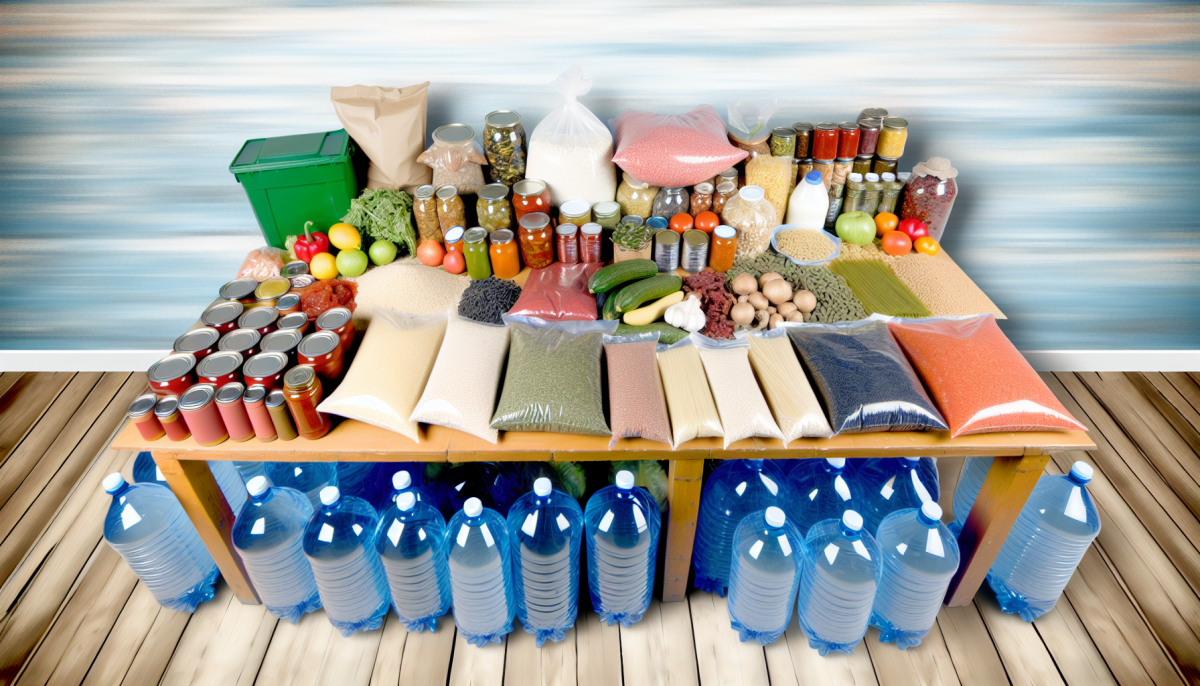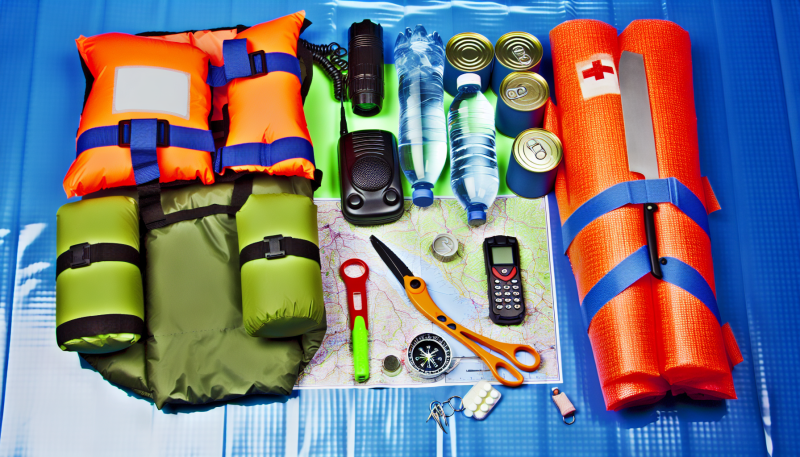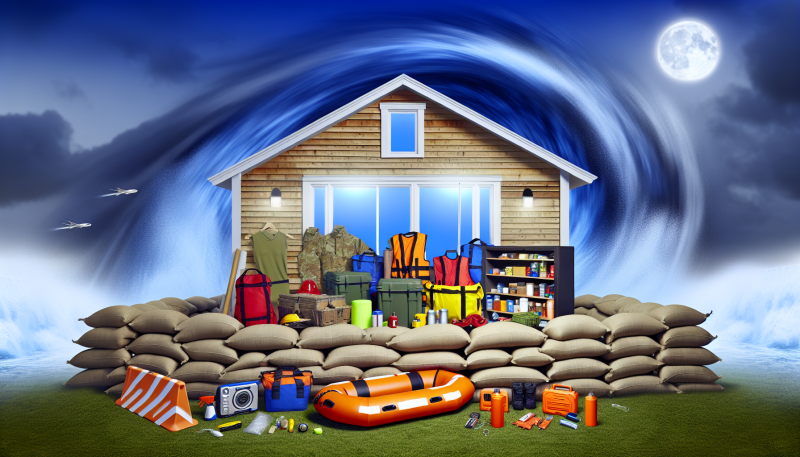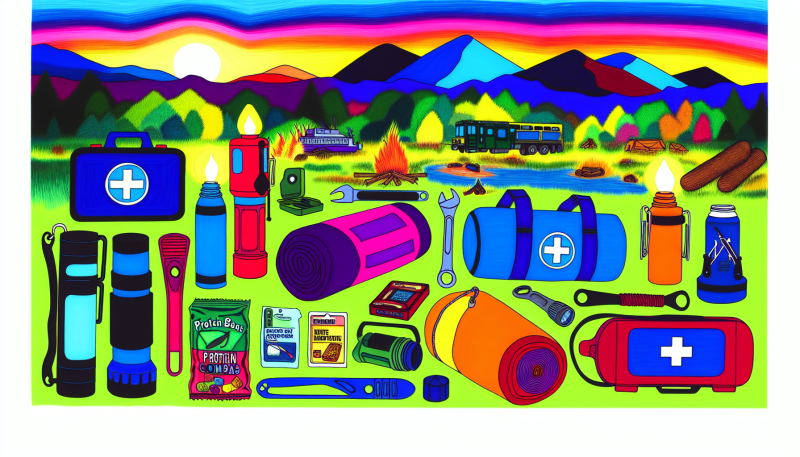When it comes to prepping, having the right food supplies is crucial for ensuring that you and your family are well-fed in case of emergencies. One key aspect of a well-rounded prepper pantry is stocking up on basic survival foods that are nutritious, shelf-stable, and easy to prepare. Here are some essential food items every prepper should consider including in their supplies.
First on the list are grains and legumes. Items like rice, oats, and pasta have a long shelf life and can serve as the backbone of many meals. They provide essential carbohydrates to keep your energy up. Beans and lentils are also excellent protein sources, and they can be stored for years without spoiling. Both grains and legumes can be prepared in a variety of ways, making them versatile choices for your pantry.
Canned goods are another vital component of any prepper’s food stockpile. Canned vegetables, fruits, and meats not only last a long time but also retain most of their nutrients. They are ready to eat right out of the can or can be easily added to other meals. Keep an assortment of flavors and types to ensure you have a balanced diet, offering you variety even in tough times.
Don’t forget about freeze-dried or dehydrated foods. These options are lightweight and take up less space, making them perfect for long-term storage. They can last for years while still providing good nutrition. Just add water, and you have a wholesome meal ready to go. Consider freeze-dried fruits, vegetables, and even complete meals to fulfill your dietary needs.
Finally, consider supplements like protein bars or meal replacement shakes. While these should not be your primary food sources, they can be great for emergency situations when traditional cooking isn't feasible. Having a supply of these portable options ensures that you won't go hungry, even when resources are limited.
Long Shelf Life Staples for Storage
When preparing for uncertain times, stocking up on long shelf life staples is crucial. These items not only have an extended lifespan but also provide essential nutrients to keep you healthy. Whether you’re new to prepping or looking to expand your supply, here are some must-have staples to consider.
One of the top choices for long-term storage is rice. This versatile grain can be used in various dishes, from stir-fries to soups. White rice, in particular, has an impressive shelf life of up to 30 years when stored properly in a cool, dry place. Another fantastic option is pasta, which can last up to 25 years. Choose whole grain varieties for added nutrition, or stock up on traditional options for comfort meals.
Canned goods are a prepper's best friend. Items like beans, vegetables, and fruits can last for years and offer a wide range of culinary possibilities. Look for low-sodium options to keep your meals healthy. Don’t forget about canned meats, such as tuna or chicken, which provide a protein boost and can be easily incorporated into salads, sandwiches, or casseroles.
Another crucial staple is dehydrated and freeze-dried foods. These products retain most of their nutrients and can last for 25 years or more. Just add water, and you can enjoy fruits, vegetables, and even complete meals. They are especially useful for camping, hiking, or emergencies when fresh food isn't an option. Add a selection of spices and seasonings to your stash to make even the simplest meals more flavorful.
Nutritious Options to Fuel Your Emergency
When preparing for emergencies, it's essential to focus on food that not only lasts long but also provides the necessary nutrients to keep you healthy and energized. Canned and dehydrated foods are excellent choices. Canned vegetables, beans, and fruits can have a long shelf life and retain most of their nutrients, making them a smart addition to your emergency supply. Just be sure to choose options with low sodium or added sugars to maintain a balanced diet.
Another fantastic option is freeze-dried meals. They are lightweight, last for years, and only require water to prepare. Brands that specialize in camping and survival food offer a range of meals packed with protein, vitamins, and minerals. This can make eating in an emergency not only practical but also enjoyable. Look for options that offer a good balance of carbohydrates, fats, and proteins to keep your energy levels up.
Don’t forget about whole grains! Items like quinoa, brown rice, and whole grain pasta can serve as hearty staples in your emergency plan. These foods are not only filling but also provide essential fiber and nutrients. Pair them with your canned proteins or freeze-dried meals for a complete and balanced dish. Including a variety of foods will help keep your meals interesting and satisfying, even during tough times.
Lastly, consider nuts and seeds. They are nutrient-dense, packed with healthy fats, proteins, and minerals, making them perfect snacks to boost your energy. They also have an exceptional shelf life, ensuring that you can rely on them in emergencies. Keep a variety on hand to enjoy on their own or mix them into your meals for added crunch and flavor. By carefully selecting nutritious options, you can create an emergency food supply that sustains both your body and spirit.
How to Stock Your Pantry Wisely
Stocking your pantry wisely is an essential step in preparing for any unexpected situation. The key is to think strategically about the types of food you'll need that will last for a long time and provide the nutrition your family requires. Start by focusing on non-perishable items that have a longer shelf life. Items such as canned vegetables, beans, and soups are not only practical but also versatile ingredients for various meals.
It's also important to include grains in your pantry. Foods like rice, pasta, and quinoa are great because they can serve as the base for numerous dishes and can be stored for years if kept in a cool, dry place. Don’t forget about whole grains, which offer more nutrients than their refined counterparts. They can add fiber to your diet, helping to keep you feeling full and satisfied.
Another valuable addition to your pantry is a variety of proteins. Canned tuna or chicken, dried beans, and peanut butter can be both filling and nutritious. Having these on hand ensures you can maintain a balanced diet even during challenging times. Additionally, remember to include some freeze-dried or dehydrated food options, which are lightweight and can provide meals with minimal preparation.
Lastly, it’s wise to stock up on spices and condiments. These might not be the first things you think of, but they can greatly enhance the flavor of your meals, making simple ingredients much more enjoyable. Consider adding items like garlic powder, dried herbs, hot sauce, and cooking oils to your supply. A well-stocked pantry can make all the difference, turning basic staples into flavorful and satisfying meals when you need them most.



